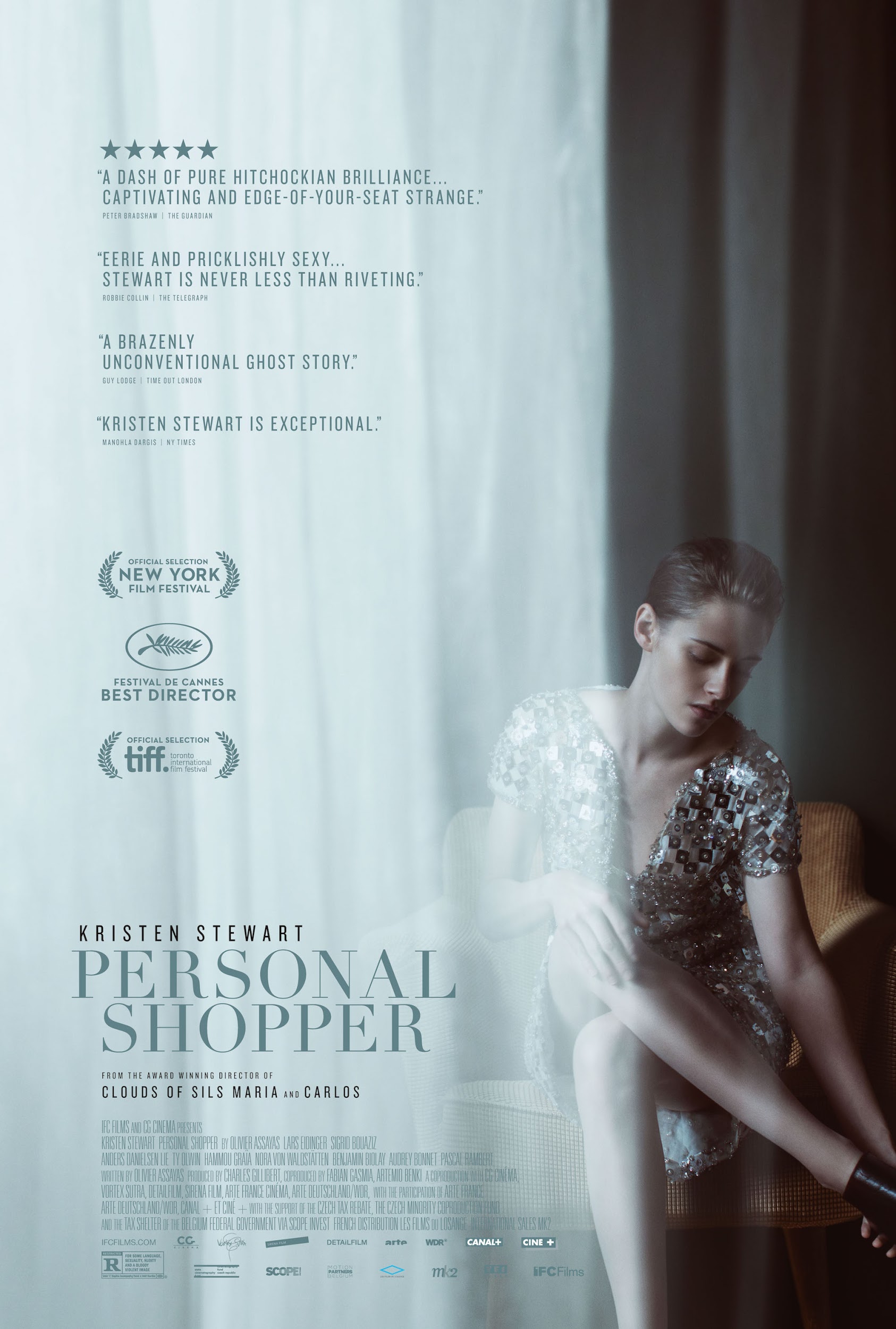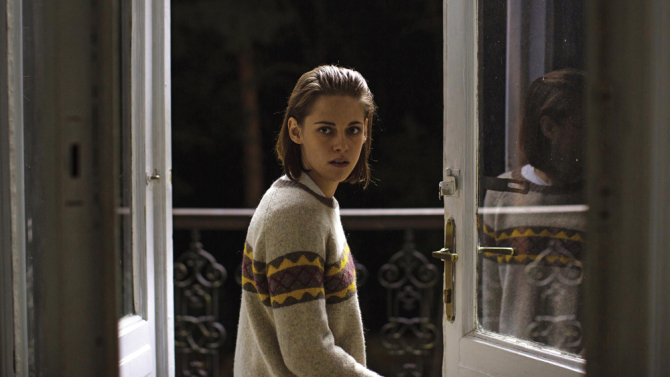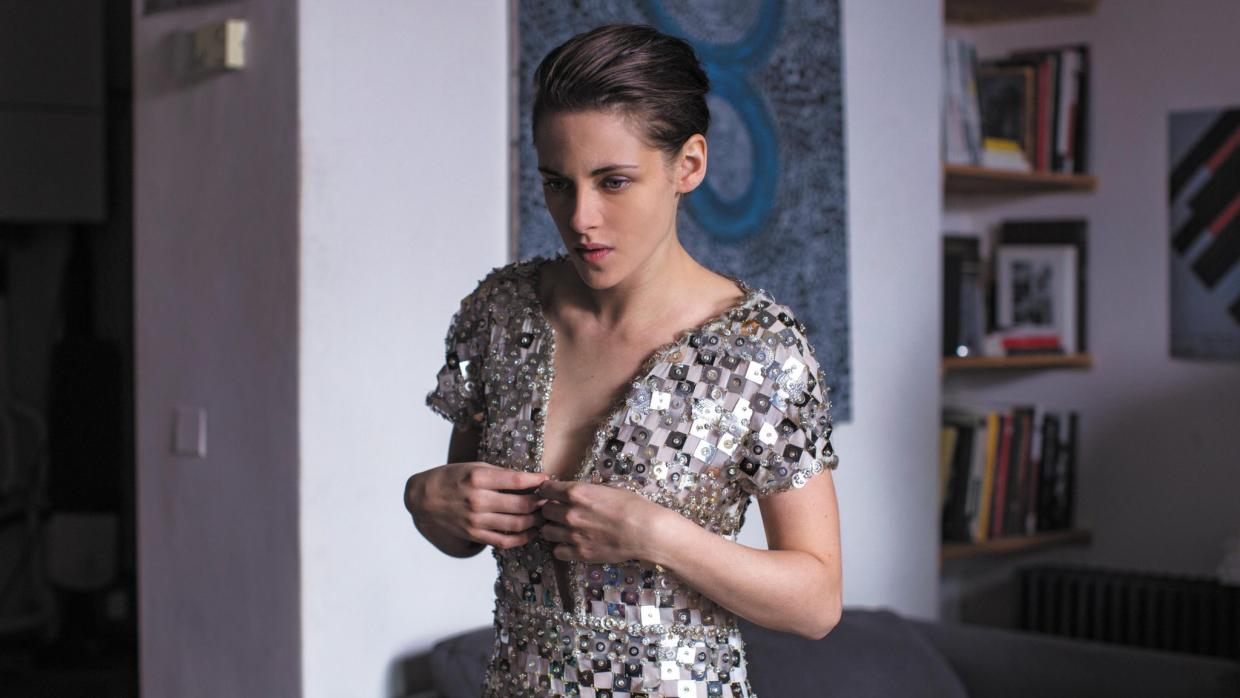PERSONAL SHOPPER Review

Director: Oliver Assayas
Genre: Drama, Horror
Year: 2017
Grieving is a process entirely dictated by oneself. With mourning comes the responsibility to move on, for death is vague, and the fear of it can only elongate bereavement. Following its Cannes best director win (after being booed, no less), director Olivier Assayas’s follow-up to his critically acclaimed CLOUDS OF SILS MARIA has finally landed in the United States. A challenging introspection of loneliness and uncertainty, this complex character study is singlehandedly anchored by an absolutely ravishing performance from Kristen Stewart, an actress who time and time again has proven that she may just be the single best living actor on earth. And that is no exaggeration; Assayas’s direction is assured and confident, but without Stewart, his Hitchcockian ghost story would be little more than a burst of brilliant non-sequiturs. It is Stewart alone, who through the smallest of gestures manages to permeate a sense of unease that elevates the film from art-house to profound character study. I never thought I could say this about a film whose screenplay is so elementary, but PERSONAL SHOPPER may already go down to host the best performance of 2017.
Stewart plays Maureen, a medium who has travelled to Paris in an attempt to connect with the spirit of her deceased brother. Of course that isn’t explained quite so directly, or easily, forcing the viewer to piece together each disparate narrative over the course of the film’s first 20 minutes. The two share a rare heart condition and swore an oath that the first to die would leave the other a message from the afterlife. Making a living as the titular shopper for a celebrity model, Stewart operates on the fringes of fame, purchasing $1000 handbags on the daily and paying visits to France’s finest designers. Stewart, herself somewhat of an iconoclast, performs this with utmost confidence, clearly tapping into her own identity—one that is consistently on the cusp of mainstream fame, but has avoided it through avant-garde projects and Cannes stardom—and the results are inspiring.

The only thing that ghost is looking at is your silly sweater, girl
There is a deep fragility to Maureen. She is a woman whose health condition has death knocking on her door, and though she can see the dead, she can’t identify whether the afterlife is something to look forward to. Assayas cleverly frames Maureen so that she is never looking where we would ideally want her to. Instances that could be, or should be, read as spiritual messages are written off by her because sometimes people just write things off as chance. This ambiguity is central to Assayas’s thesis. Maureen fears the unknown and despises her own identity, and though she can’t look away from the supernatural, she occasionally just fails to see it. By quite literally working as the surrogate for another human being, she hesitantly embraces the identity of her boss, dressing in her luxurious garb and masturbating in her lavish home (without permission, of course). There is something to be said about the fact that Maureen looks phenomenal in all these outfits, because despite her appearance, her pervasive despondency illuminates just how hollow an entire world of celebrity feel as well.
And still there is more to the elliptical nature of Assayas’s film. His message of mourning is telescopic in its precision, yet the tonal ambiguities surrounding Maureen and the world she inhabits are almost entirely accomplished by Stewart alone. Her pent-up frustration is palpable as she spends entire nights in a picturebook haunted house, patiently anticipating a sign from a spirit. And though she yells and proclaims that she’s desperate for a signal, she cowers in fear as soon as the ghost is in front of her. It is these moments of insecurity that bring out her most human qualities. A vital turning point occurs when Maureen begins receiving text messages from the beyond. By forming a text-based conversation with a spirit, Assayas explores the nature of memory and communication through a far more modern lens than any traditional ghost story. What makes this so compelling is the fact that once again, the ambiguities about the voice on the other line can be explained rationally and spiritually.

Justin Bieber + Derek Zoolander = Kristen Stewart <3
It is only when Maureen finds an infatuation with the paintings of Swedish mystic Hilma Af Klint that PERSONAL SHOPPER somewhat falters. Perhaps it’s because they are the only instances in the greater narrative where Assayas has more thematic control than Stewart, but there’s something about drawing a declarative comparison between the works of an abstract spiritualist painter with one’s own film that I find egregiously patronizing. And yet, even here, where Stewart is doing little more than flipping through pages, I can’t help but be compelled. Perhaps it is her own conviction to her character’s fascinations, but her identity quite literally grabs me by the collar and takes me on her journey. I am just as enthralled by the world Maureen inhabits as any high-stakes blockbuster, and it’s all accomplished by her relative ennui, languidly awaiting a response from a spirit that she may never see. And perhaps that is exactly the point; death is vague, and we’ll never know the answers, and if the final shot of PERSONAL SHOPPER is anything to go by, neither will Maureen.
Verdict: Recommend




2 Responses
[…] Read the full review here. […]
[…] Read the full review here. […]